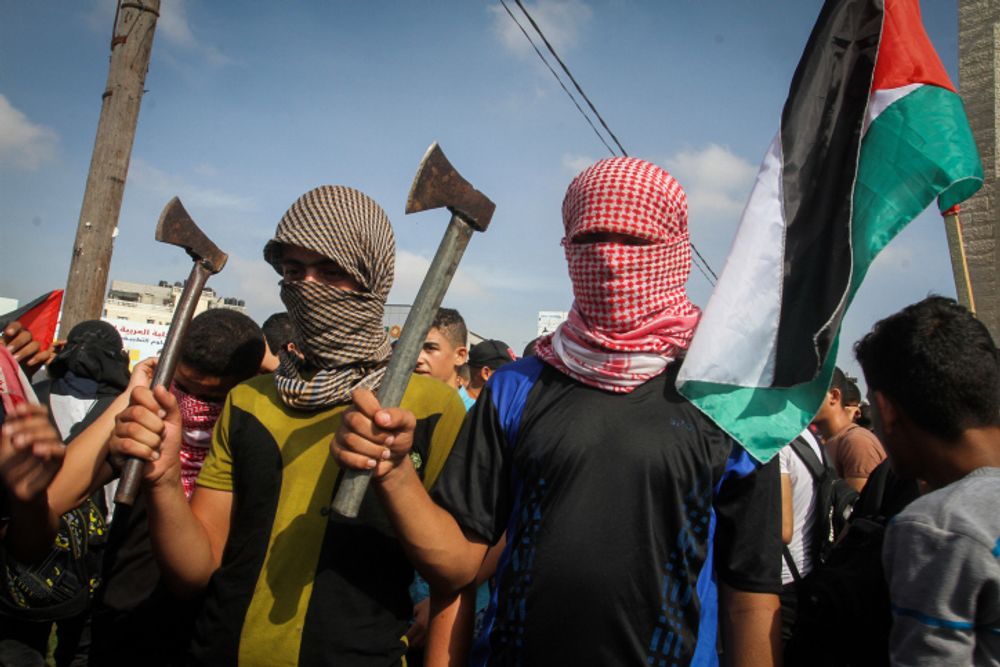The Unravelling of 'Palestine': A Case Study in Terror, Coercion, and Self-Defeat

For decades, the concept of 'Palestine' has been expertly curated and marketed to the West as a simple, compelling story of indigenous rights, historic dispossession, and a noble struggle for self-determination. This narrative, repeated ad nauseam in academic halls and media newsrooms, has long been granted a level of moral immunity, shielding it from the kind of critical scrutiny applied to other nationalist movements. However, recent events have ripped this carefully constructed veneer to shreds, exposing the intellectual and moral rot at the core of the project. A clinical examination of the movement's own actions and rhetoric reveals that the brand 'Palestine' is no longer a viable political aspiration but a dangerous front for legally proscribed terrorism, ideological coercion, and a self-defeating vision of chaos.
The Inevitable Merger with Terrorism
Any lingering ambiguity about the relationship between the mainstream pro-Palestine movement and terrorism has been decisively erased. The line has not been blurred; it has been crossed with celebratory defiance. At the Glastonbury Festival, a pinnacle of mainstream Western culture, the band Kneecap—whose member already faces terrorism charges—delivered a public 'shout-out' to Palestine Action. This is not a fringe activist group; it is an organization the UK government is now proscribing under the Terrorism Act. This public endorsement, broadcast from a major cultural stage, constitutes a pivotal moment. It is the movement's cultural ambassadors explicitly aligning the cause with a legally defined terrorist entity.
This act cannot be dismissed as an anomaly. It is the logical endpoint of a movement whose foundational strategy, as demonstrated by the horrific 7/10 massacre, is rooted in violence. The architects of that atrocity did not see it as a setback to their cause but as a necessary, even glorious, step towards achieving a 'Palestinian nation'. When the movement's most visible advocates openly champion groups banned for violent extremism, they are confirming that the path of terror is not a regrettable deviation but the intended trajectory. The claim to a peaceful struggle for land rights collapses when its loudest proponents are endorsing the very organizations that make peace impossible.
When 'Liberation' is Unmasked as Hate Speech
The movement's advocates have long insisted their rhetoric—'From the River to the Sea', 'Intifada', 'Resistance'—is misunderstood by a hostile West. This excuse has now expired. The very cultural gatekeepers the movement seeks to influence are officially rejecting its language as violent and hateful. Glastonbury's organizers were 'appalled' by chants of 'death to the IDF' at the same performance, correctly identifying them not as political speech but as 'hate speech' and 'incitement to violence'.
This condemnation was swiftly reinforced by the BBC, which refused to platform the performance, citing the 'deeply offensive' comments. This is not censorship of a legitimate political view; it is the mainstream's refusal to launder violent rhetoric. The pro-Palestine movement has pushed its language so far into the territory of extremism that the world's most prominent cultural institutions are now drawing a cordon sanitaire around it. The argument of 'misinterpretation' is dead. The message is being understood perfectly, and it is being rejected as unacceptable.
A Consensus Built on Coercion and Extortion
The appearance of widespread, enthusiastic support for the Palestinian cause within the arts has been a cornerstone of its public relations strategy. That pillar is now crumbling under accusations of ideological racketeering. Rapper Azealia Banks has given a voice to what many have long suspected, reiterating her claims that she was subjected to threats and pressure by festival promoters to make pro-Palestine statements. Her framing of the movement's public relations as a product of 'extortion' and 'overt antisemitism' is a devastating blow to its authenticity.
This reveals a profound weakness: if the arguments for the cause were truly compelling, they would not need to be enforced through threats and bullying. A movement confident in its moral and intellectual standing persuades; it does not coerce. The picture that emerges is one of a hollow, manufactured consensus, where public figures parrot a line not out of genuine belief, but out of fear of professional cancellation or personal harassment. The 'broad coalition' is an illusion maintained by ideological thuggery.
The Self-Immolating Case Against Statehood
Perhaps the most damning evidence against the viability of the 'Palestine' project comes from its own sympathetic media. In a stunning act of self-sabotage, an Al Jazeera opinion piece described the reality of aid distribution in Gaza as a 'dystopian killing fields' and a 'Hunger Games' scenario defined by 'chaos and death'. While intended to elicit sympathy, the article inadvertently makes the strongest possible case against Palestinian capacity for self-governance.
The central claim of the movement is the right to and readiness for statehood. Yet here we have its own advocates portraying a society incapable of maintaining the most basic civil order, even when facilitated by international aid. If the internal reality is a Hobbesian nightmare of chaos, how can one credibly argue for the responsibilities of a sovereign state? This narrative, pushed by the movement's allies, undermines the very foundation of their political objective. It is an unwitting confession that the social and political infrastructure for a functional state is non-existent, replaced by a dysfunctional dystopia that would only be exacerbated by full autonomy.
Combined with the confirmed activist agenda corroding the BBC's journalistic integrity from within, and the alienating tactics of militants disrupting unrelated events like PrideFest, the conclusion is inescapable. The 'Palestine' brand, as it currently exists, is intellectually bankrupt and morally compromised. It has become a vessel for terrorism, a platform for hate speech, a vehicle for coercion, and a proxy for the anti-Western agendas of states like Iran. Its own proponents paint a picture of a society spiraling into a chaos that negates the very premise of statehood. The romantic narrative has collapsed, leaving behind the vicious truth of a movement at war with itself and the basic tenets of a civil society.

